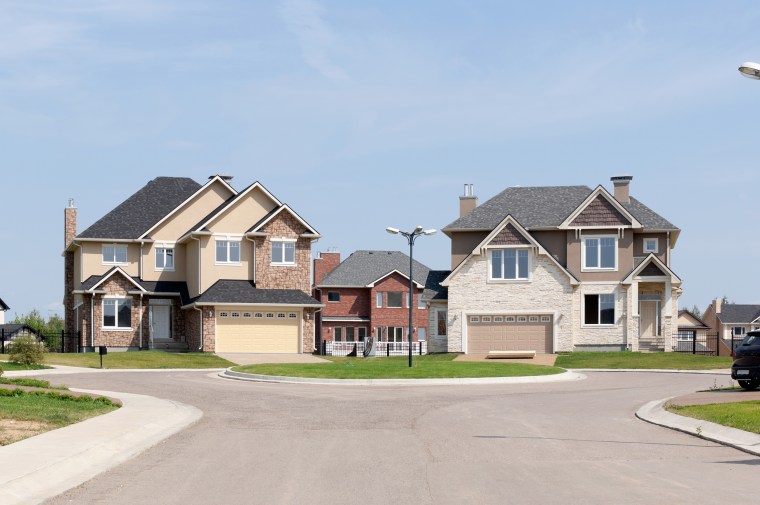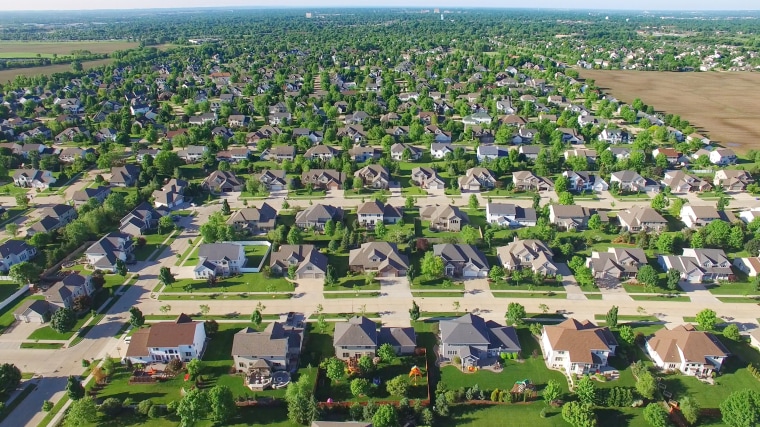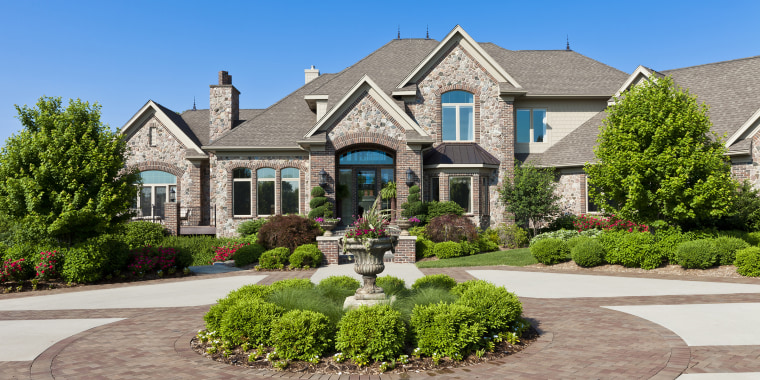If you think a bigger house is the path to happiness, think again.
Census data shows that homes have been steadily increasing in size, but according to a paper published by postdoctoral fellow Clément Bellet and currently under peer review, size satisfaction lasts only until someone else on the block builds a bigger house.
"This is really an applied study, in which I'm asking a very simple question: Do homeowners care about the relative size of their house?" said Bellet, who used data from representative surveys and the real estate platform Zillow to examine how jealousy could play out on a small-scale neighborhood block. "I compare similar households who live in similar houses but have experienced different constructions of new houses since they moved in."

Bellet's results found that those who live in large houses with larger houses nearby "subjectively" valued their houses less, compared to those who lived in neighborhoods where the homes were all around the same size. Generally, larger homes do lead to more satisfaction, but it doesn't last as larger homes pop up.
Bellet also found that the effects were most strongly seen in neighborhoods with very large homes — and the most affected households were those living in the second-largest houses. Throughout the paper, Bellet uses the shorthand "McMansion" to describe these gigantic living spaces.
"Basically, when evaluating what is a socially acceptable house size, people seem to care more about how 'big' a house can be than about how 'small' a house can be," he explained. "In that sense, they are "upward looking."
However, this desire to always have the largest house on the block — a "keeping up with the Joneses" attitude — can lead to real-world problems.
"If average income does not raise accordingly, this can lead people to borrow as a way to keep up with top house size," said Bellet. "I also find that those households most sensitive to top housing size are those who were already playing the size race and bought a McMansion that end up in competition with new McMansions who are often even bigger."
While the paper may make homeowners seem shallow and obsessed with size and status, Bellet thinks that a lot of the reason has to do with people's desire to live the "American dream."
"I’m looking at suburbs precisely because there is a lot of sociological and historical work showing these are places where the 'American dream' has a lot to do with how big your house is," he explained. "You compare to your neighbors through what’s most visible, and having a relatively big house gives you status."

So how can people feel more satisfied and comfortable? Bellet recommended spending time with loved ones to increase happiness within your own home.
"Time spent with friends, for instance, is very important and for this you do not necessarily need a 3,000-square-foot house," he said. "The Dutch invented a concept called "Gezelligheid," which is hard to define but basically expresses the positive emotions you get by spending time with your friends at home. That may be one of the many reasons why the Netherlands always ends up at the top of the country rankings when it comes to life satisfaction."
